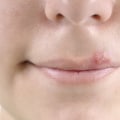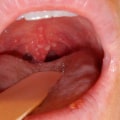Antiviral medications are a powerful tool in the fight against infectious diseases like the herpes virus. With the right medications, it is possible to reduce the symptoms and duration of an outbreak, as well as prevent future outbreaks. This article provides a comprehensive overview of antiviral medications for treating herpes virus infections, from the types of medications available to their potential side effects. We will also discuss how to select the right treatment for you and what you can do to maximize the effectiveness of your antiviral medications. Antiviral medications are drugs that can help to reduce the severity and duration of genital herpes outbreaks.
There are several different types of antiviral medications available, each with their own effects and side effects. Common types of antiviral medications used for genital herpes include acyclovir, valacyclovir, and famciclovir. Acyclovir is the oldest form of antiviral medication and is also the most widely used. It works by interfering with the virus' ability to replicate and spread throughout the body.
Acyclovir is typically taken orally four times per day for five to ten days during an outbreak, although it may be taken for longer periods of time depending on the severity of the symptoms. Common side effects of acyclovir include nausea, vomiting, diarrhea, and headache. Valacyclovir is a newer form of antiviral medication that is more effective than acyclovir. It works by blocking the virus from entering cells and by preventing it from replicating.
Valacyclovir is usually taken orally twice a day for five to ten days during an outbreak. Common side effects of valacyclovir include nausea, vomiting, diarrhea, headache, and dizziness. Famciclovir is an antiviral medication that works by blocking the virus from entering cells and by preventing it from replicating. Famciclovir is usually taken orally twice a day for five to ten days during an outbreak.
Common side effects of famciclovir include nausea, vomiting, diarrhea, headache, and dizziness. Antiviral medications can be very effective in reducing the severity and duration of genital herpes outbreaks. However, they can also have potential side effects, so it’s important to speak to your doctor or healthcare provider before taking any medication. In addition to antiviral medications, there are other treatments available for genital herpes, such as lifestyle changes and home remedies.
Lifestyle changes such as avoiding triggers, eating a healthy diet, and exercising regularly can help reduce the frequency and severity of outbreaks.
Other Treatments for Genital Herpes
In addition to antiviral medications, there are other treatments for genital herpes that can help reduce the severity and duration of outbreaks. These treatments may include lifestyle changes, such as avoiding triggers that can cause outbreaks, as well as home remedies. Lifestyle changes are important in managing genital herpes. Avoiding triggers such as stress, fatigue, and excessive alcohol consumption can help reduce the frequency and severity of outbreaks. It is also important to practice good hygiene, such as washing your hands frequently and keeping the affected area clean and dry. In addition to lifestyle changes, there are also home remedies that can help manage genital herpes.These include applying cold compresses or warm baths to reduce itching and pain, as well as taking over-the-counter pain relievers to reduce discomfort. Some people have reported that taking supplements such as vitamin C and zinc can help reduce the severity and duration of outbreaks. It is important to talk to your doctor before beginning any new treatment for genital herpes. Some treatments may interact with medications or be unsafe for certain people. Your doctor can help you find the best treatment plan for your individual needs.
Types of Antiviral Medications for Genital Herpes Treatment
Antiviral medications are a form of treatment used to reduce the severity and duration of genital herpes outbreaks.There are three main types of antiviral medications available for treating genital herpes: acyclovir, valacyclovir, and famciclovir. Acyclovir is the oldest type of antiviral medication for genital herpes. It works by blocking the growth of the virus that causes genital herpes. It can reduce the severity and duration of an outbreak, but it does not prevent future outbreaks.
It is available in both oral and topical forms, and may cause some side effects such as nausea, vomiting, and diarrhea. Valacyclovir is a newer type of antiviral medication that is taken orally. It works by blocking the replication of the virus that causes genital herpes. It can reduce the severity and duration of an outbreak, and may also help to prevent future outbreaks.
Valacyclovir can cause some side effects such as headache, nausea, and diarrhea. Famciclovir is also a newer type of antiviral medication that is taken orally. It works by blocking the reproduction of the virus that causes genital herpes. Famciclovir can cause some side effects such as headache, nausea, and diarrhea.
All three types of antiviral medications for genital herpes treatment can reduce the severity and duration of outbreaks, but may have some side effects. It is important to discuss the risks and benefits with your doctor before starting any treatment plan. In conclusion, antiviral medications are an important part of treating genital herpes. Different types of antiviral medications are available that can help reduce the severity and duration of outbreaks. It is important to discuss your treatment options with a healthcare professional before beginning any treatment plan for genital herpes.
Other treatments such as lifestyle changes and home remedies may also help in managing symptoms and preventing outbreaks.


